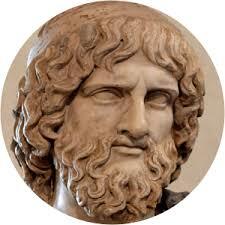
HIEROCLES is a Greek Stoic thinker, known for his written work entitled “Elements of Ethics“. In that work he maintains that animals perceive themselves continuously and that animals’ self-perception is their most relevant faculty. This thesis is strictly related to the Stoic notion of self-ownership (<oikeiôsis>). His first assumption is that animals self-preserve themselves. The second is that animals are not self-aware of themselves if not in relation to other animals. This argument is part of the basis for a thorough theory of ethics.
In another fragment of the Hierocles’ writings we find an explanation of Stoic cosmopolitanism with the use of concentric circles. Hierocles says that the individuals consist of a series of circles. The first circle is the one of the human mind. Then comes the circle of the family. This is followed by the extended family and then by the local community. Next comes the community of close towns, followed by the country, and finally by the entire human race.
Hierocles even suggests that we start calling people who are not relative “uncle” or “brother”, depending on their age. His idea is to acquire the habit of thinking of everyone as truly close to us. And it might be interesting to notice that this idea is actually in use nowadays into clans, sects and brotherhoods. Such a notion proves that Hierocles is a Greek Stoic thinker, with a special interest in social issues. After all, it is wrong to think that Stoicism was far from social and political topics. Not only we have the case of Hierocles, but also the ones of Seneca and Marcus.